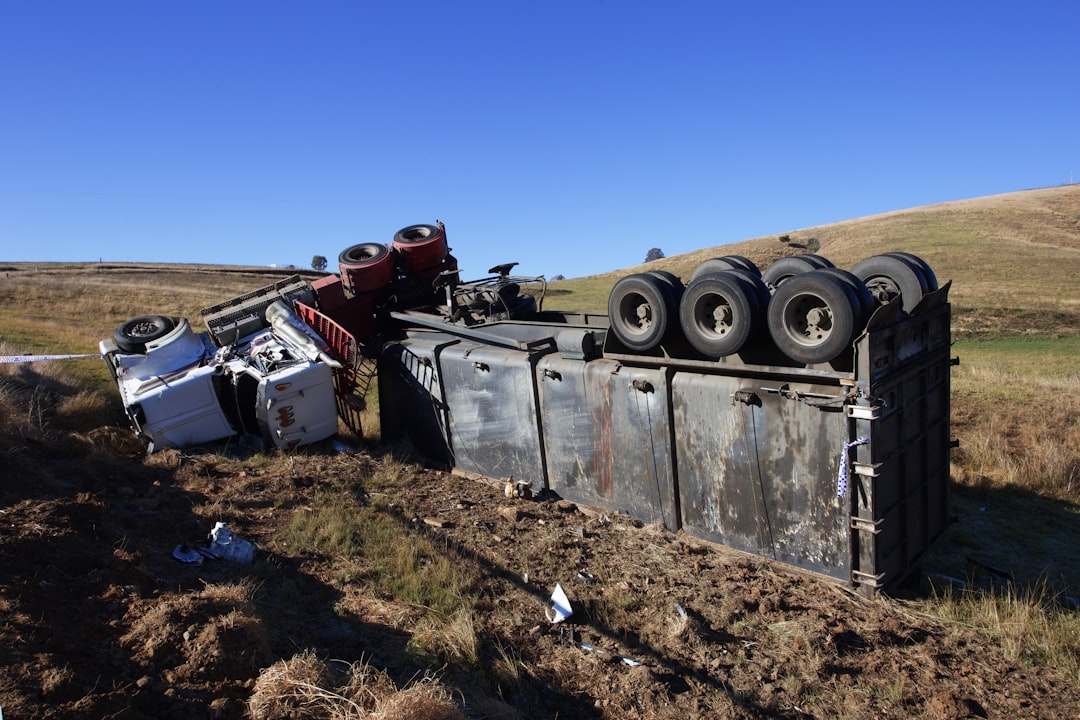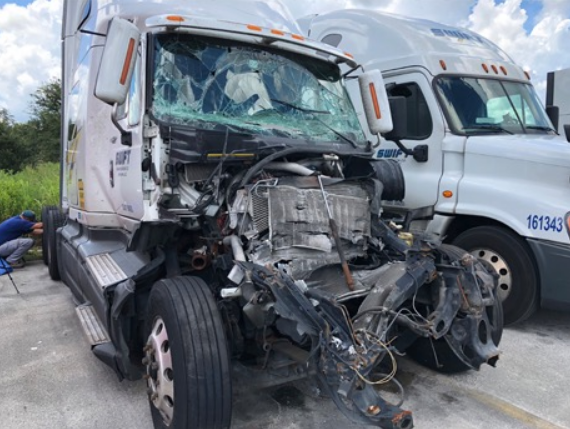Understanding Wrongful Death Claims in the Context of Medical Malpractice
Understanding Wrongful Death Claims in the Context of Medical Malpractice
The loss of a loved one is an emotional and trying ordeal, made even more harrowing when their death was preventable. In such instances, families often seek justice through wrongful death claims, particularly in cases involving medical malpractice. Understanding these claims requires a nuanced grasp of both legal tenets and medical intricacies.
Wrongful death claims arise when someone dies due to the negligent actions or omissions of another party. In the realm of medical malpractice, this negligence typically involves healthcare professionals who fail to meet the standard of care expected in their field. This could range from misdiagnosis or surgical errors to medication mishaps or neglecting patient needs.
A key element in pursuing a wrongful death claim is establishing liability. The plaintiff must demonstrate that the healthcare provider owed a duty of care to the deceased, breached this duty through negligent action or lack thereof, and directly caused the patient's death as a result. This often necessitates detailed medical records, expert testimonies, and sometimes even forensic analysis.
Medical malpractice cases are inherently complex due to their dual nature: they straddle both legal and medical domains. Lawyers specializing in this field need not only a deep understanding of legal frameworks but also familiarity with medical terminology and procedures. They work closely with medical experts who can substantiate claims by explaining how deviations from accepted practices led to fatal outcomes.
The compensation sought in wrongful death claims aims to address both economic and non-economic damages. Economic damages might include lost wages, funeral expenses, or medical bills incurred prior to death. Non-economic damages cover intangible losses like pain and suffering, loss of companionship, and emotional distress experienced by surviving family members.
However, pursuing these claims isn't solely about financial recovery; it's also about accountability and systemic change. Successful lawsuits can exert pressure on healthcare institutions to rectify flaws in their systems, potentially preventing future tragedies.
Navigating a wrongful death claim demands resilience and meticulous attention to detail from grieving families and their legal representatives alike. It's important for families to engage an experienced medical malpractice lawyer who can provide compassionate guidance while meticulously building a robust case.
In conclusion, wrongful death claims within the context of medical malpractice serve as essential tools for seeking justice and fostering improvements in healthcare practices. While no amount of compensation can replace a lost loved one, holding negligent parties accountable provides some measure of solace and contributes towards safer medical environments for all.
Key Elements Required to Prove a Medical Malpractice Wrongful Death Case
Medical malpractice wrongful death cases are both complex and emotionally charged, demanding a thorough understanding of legal principles and medical standards. The role of a medical malpractice lawyer in these cases is crucial, as they must navigate the intricate web of laws, medical terminologies, and evidence to establish liability and secure justice for the bereaved family. To prove a medical malpractice wrongful death case, several key elements must be established.
First and foremost, there must be a clear establishment of duty. This means demonstrating that the healthcare provider owed a duty of care to the deceased patient. In most scenarios, this duty is inherently present in the doctor-patient relationship. For example, when a patient seeks treatment from a physician or is admitted to a hospital, an implicit agreement is formed that obligates the healthcare provider to deliver care that meets accepted medical standards.
Next, it is essential to show that there was a breach of this duty. A breach occurs when the healthcare provider fails to act in accordance with the standard of care expected from professionals in similar circumstances. This could involve misdiagnosis, surgical errors, medication mistakes, or failure to provide appropriate treatment. Expert testimony often plays a pivotal role here; seasoned medical professionals are called upon to testify about what constitutes standard care and how the defendant deviated from these norms.
Causation forms another critical element in proving wrongful death due to medical malpractice. medical malpractice lawyer Tacoma . It must be demonstrated that the breach of duty directly caused or significantly contributed to the patient's death. Establishing causation can be challenging because it requires linking specific actions or omissions by the healthcare provider directly to the fatal outcome. Medical records, expert opinions, and sometimes even timelines can help illustrate how deviations from proper care led directly to deterioration in health culminating in death.
The final element involves damages - quantifying the financial and emotional impact resulting from the loss. This includes tangible costs such as medical bills incurred before death, funeral expenses, lost wages if the deceased was an earning member of their family, and intangible losses like pain and suffering endured by surviving family members. Lawyers must carefully document these aspects using evidence like employment records for income loss calculations or personal testimonies about emotional distress.
Navigating through these elements demands both legal acumen and compassion. A competent medical malpractice lawyer not only constructs compelling arguments based on robust evidence but also provides empathetic support during an incredibly trying time for families grappling with loss.
In conclusion, proving a medical malpractice wrongful death case hinges on establishing duty, breach of duty, causation between breach and death, along with concrete damages suffered by surviving relatives. Each element interconnects with meticulous evidence gathering guided by expert insights making it imperative for affected families to seek experienced legal representation specialized in this nuanced area of law.
Common Types of Medical Errors Leading to Wrongful Death Claims
Medical errors are an unfortunate reality in the healthcare system, and when they lead to wrongful death, the consequences can be devastating for families. Understanding common types of medical errors that result in wrongful death claims is crucial for both healthcare providers and those seeking justice through a medical malpractice lawyer.
One prevalent type of medical error is misdiagnosis or delayed diagnosis. When a healthcare professional fails to accurately diagnose a patient's condition, it can lead to incorrect treatment or no treatment at all. For instance, if a doctor misdiagnoses cancer as a less serious illness, valuable time is lost during which the correct treatment could have been administered. Unfortunately, this delay can allow the disease to progress beyond treatable stages, leading to fatal outcomes.
Medication errors are another significant cause of wrongful death claims. These errors can occur at various stages, from prescribing and dispensing to administering the medication. A common example includes prescribing the wrong dosage or even the wrong medication entirely. Such mistakes can lead to severe adverse reactions or lack of necessary therapeutic effects, ultimately resulting in fatal consequences.
Surgical errors also contribute significantly to wrongful deaths in medical settings. Mistakes during surgery can range from operating on the wrong body part to leaving surgical instruments inside the patient's body. These egregious errors not only diminish trust in healthcare professionals but also pose severe risks that can result in immediate or eventual death due to complications such as infections or organ damage.
Anesthesia-related complications represent another critical area where medical errors can lead to wrongful death. Administering too much anesthesia or failing to monitor a patient properly during surgery can result in catastrophic outcomes like brain damage or cardiac arrest. The delicate balance required in anesthesiology makes it particularly prone to severe consequences if mistakes occur.
Infections acquired within hospitals-often due to unsanitary conditions or negligence-are also alarming contributors to wrongful death claims. Healthcare-associated infections (HAIs) such as sepsis or pneumonia often arise because of lapses in infection control practices by medical staff. Patients with compromised immune systems are particularly vulnerable and may succumb quickly if an infection sets in.
Lastly, failures related to emergency room care cannot be overlooked. Emergency rooms are high-pressure environments where timely and accurate decision-making is crucial. Errors such as failing to recognize life-threatening conditions like heart attacks or strokes can lead directly to patient deaths when immediate intervention could have saved lives.
Navigating through these tragic circumstances requires specialized legal expertise. Medical malpractice lawyers who focus on wrongful death claims play an essential role by scrutinizing medical records, consulting with experts, and building strong cases that hold negligent parties accountable while seeking justice for grieving families.
In summary, understanding common types of medical errors-from misdiagnosis and medication mishaps to surgical blunders and hospital-acquired infections-is vital for preventing future occurrences and ensuring accountability when they do happen. By shedding light on these issues through legal avenues, we hope not only for recompense but also systemic improvements that safeguard future patients from similar fates.
The Legal Process for Filing a Wrongful Death Claim in Medical Malpractice Cases
The Legal Process for Filing a Wrongful Death Claim in Medical Malpractice Cases
Losing a loved one is always a deeply traumatic experience, and the pain can be even more intense when that loss is due to medical malpractice. When healthcare providers fail in their duty of care, causing fatal consequences, families may seek justice through wrongful death claims. Understanding the legal process for filing such claims is crucial to ensure that bereaved families can navigate this complex terrain effectively.
Firstly, it's essential to establish what constitutes medical malpractice. Medical malpractice occurs when a healthcare provider deviates from the accepted standards of practice, resulting in harm to the patient. In cases of wrongful death, this deviation must be directly linked to the patient's demise. Common examples include surgical errors, misdiagnosis, delayed diagnosis, or improper treatment.
Once there is reason to believe that medical malpractice has occurred, the next step involves consulting with a specialized attorney experienced in wrongful death claims within the realm of medical malpractice. These lawyers possess the knowledge and expertise necessary to evaluate the merits of your case. During an initial consultation, they will review medical records, speak with experts if needed, and determine whether there are sufficient grounds to proceed with a lawsuit.
If the attorney determines that you have a viable claim, they will begin by conducting a thorough investigation. This includes gathering all relevant medical records and documentation related to your loved one's treatment and death. Expert opinions are often sought during this stage; these professionals can provide critical insights into whether standard care protocols were breached.
Next comes filing the actual lawsuit. The complaint outlines your allegations against the healthcare provider or institution responsible for your loved one's death. It details how their actions-or lack thereof-led to fatal outcomes and usually specifies the damages being sought. Damages may include funeral expenses, lost wages (if applicable), loss of companionship, and emotional distress suffered by surviving family members.
Once filed, both parties enter into a discovery phase where evidence is exchanged between them. This period allows each side to scrutinize documents and depose witnesses under oath. It is common for both sides to negotiate during this stage; many cases settle out of court through mediation or arbitration rather than proceeding to trial.
Should negotiations fail and settlement prove elusive, the case proceeds to trial. Herein lies another critical function of having an experienced wrongful death attorney: presenting your case compellingly before a judge or jury requires not just legal acumen but also intricate knowledge about medical procedures and standards of care.
During the trial phase, both sides present their arguments supported by evidence such as expert testimonies and pertinent documentation reviewed during discovery. The judge or jury then deliberates on whether negligence occurred and if so what compensation should be awarded based on demonstrated losses incurred by surviving family members.
It's important also not forget about statutes limitations which vary state-to-state dictating how long after an incident one has file suit; missing these deadlines could nullify right seek redress entirely underscoring need prompt action once suspicion arises regarding potential wrongdoing leading untimely passing loved ones
In conclusion navigating legal process filing wrongful death claim stemming from alleged incidents medical malpractice involves multiple steps requires comprehensive preparation detailed understanding laws governing such cases working closely qualified attorneys specializing field essential ensuring justice served families affected tragic avoidable losses
Potential Damages Recoverable in a Medical Malpractice Wrongful Death Lawsuit
In the tragic event of a wrongful death due to medical malpractice, the pain and suffering endured by the surviving family members is immeasurable. The grieving process is compounded by the realization that their loved one's death could have been prevented if not for negligence or substandard care from a medical professional. In these heart-wrenching circumstances, pursuing a wrongful death lawsuit becomes a means not only to seek justice but also to secure financial stability in the wake of an irreplaceable loss.
Potential damages recoverable in a medical malpractice wrongful death lawsuit serve multiple purposes: they provide compensation for economic losses, offer solace for emotional suffering, and act as a deterrent against future negligence in the medical field. The scope of recoverable damages can vary widely depending on jurisdictional laws and the specific details surrounding each case.
One primary category of damages is economic damages. These encompass tangible financial losses incurred as a result of the deceased's passing. For instance, families may be compensated for medical bills that accumulated prior to death, funeral and burial expenses, and lost income that the deceased would have contributed had they lived. This includes both past earnings and future potential earnings, which can be calculated based on factors such as age, occupation, health at the time of death, and life expectancy.
Non-economic damages represent another critical component of compensation in these lawsuits. Unlike economic damages, these are more subjective and aim to address intangible losses such as loss of companionship, guidance, affection, and moral support that the deceased provided to their family members. The emotional toll on spouses, children, parents or other close relatives often merits substantial consideration when determining non-economic damages.
In some cases where egregious misconduct or gross negligence is involved-such as blatant disregard for standard medical procedures-punitive damages may also be awarded. These are intended not so much to compensate the family but rather to punish particularly reckless behavior by healthcare providers and deter similar conduct in others within the industry.
It's important to recognize that each state has its own legal framework governing wrongful death claims arising from medical malpractice. Statutory caps on certain types of damages may limit recovery amounts; statutes of limitations dictate deadlines by which claims must be filed; survivorship laws affect how proceeds are distributed among heirs; all these factors demand careful navigation through complex legal terrain.
Engaging with an experienced medical malpractice lawyer is crucial for families seeking justice through a wrongful death claim. Attorneys specializing in this area possess deep understanding of applicable laws along with practical expertise needed for building compelling cases-whether through negotiating settlements out-of-court or presenting evidence persuasively before juries during trials.
Lawyers play an indispensable role in gathering necessary documentation (like medical records), consulting expert witnesses (such as independent doctors who can attest deviations from accepted standards), calculating accurate damage estimates reflective both immediate impacts & long-term ramifications post-loss-and ultimately guiding clients compassionately yet assertively throughout arduous legal proceedings while safeguarding their interests at every step along way.
In conclusion: Potential Damages Recoverable stand central pivot point around which Medical Malpractice Wrongful Death Lawsuits turn-not merely mechanism providing monetary relief-but instrumentality fostering accountability within healthcare systems thereby fortifying protections safeguarding public health welfare overall amidst ever-evolving landscape modern medicine advancements alongside inherent risks thereof encapsulated therein accordingly conversely likewise reciprocally dynamically interdependent manner consequentially essentially fundamentally quintessentially perpetually inherently intrinsically profoundly continually invariably universally existentially intrinsically innately integrally inclusively indisputably undeniably indispensably imperatively vitally crucially critically significantly substantially meaningfully pertinent relevant paramount
Importance of Hiring an Experienced Medical Malpractice Lawyer for Wrongful Death Claims
When faced with the unimaginable pain of losing a loved one due to medical malpractice, it's essential to seek justice and closure. Hiring an experienced medical malpractice lawyer for wrongful death claims is crucial in navigating this complex and emotional journey.
Medical malpractice cases are notoriously intricate, requiring a profound understanding of both legal and medical fields. An experienced lawyer brings invaluable expertise to the table, ensuring that all aspects of the case are meticulously examined. These professionals have spent years honing their skills and knowledge, making them adept at identifying negligence that may not be immediately apparent to the untrained eye.
One significant advantage of hiring an experienced lawyer is their ability to thoroughly investigate the circumstances surrounding the wrongful death. They work with medical experts who can scrutinize hospital records, autopsy reports, and other critical documents to uncover any deviations from standard care protocols. This level of scrutiny is essential in building a robust case that can withstand the rigorous demands of the legal system.
Moreover, seasoned lawyers understand the emotional toll such cases take on families. They offer not just legal representation but also compassionate support throughout the process. Their experience allows them to handle sensitive situations with empathy while maintaining a focus on achieving justice for their clients. This dual role as both advocate and ally can provide much-needed reassurance during a profoundly challenging time.
Another vital aspect of hiring an experienced medical malpractice lawyer is their negotiation prowess. Wrongful death claims often involve substantial settlements or jury awards. Lawyers who specialize in this field have honed their negotiation skills over numerous cases, positioning them well to secure fair compensation for grieving families. They understand the tactics used by insurance companies and defense attorneys and can effectively counter these strategies to ensure their clients' interests are safeguarded.
Furthermore, experienced lawyers are adept at navigating the procedural intricacies involved in filing wrongful death claims. They are familiar with statutes of limitations, jurisdictional nuances, and other procedural requirements that can significantly impact the outcome of a case if mishandled. By ensuring all legal formalities are correctly observed, they prevent potential pitfalls that could delay or derail proceedings.
In addition to these practical benefits, hiring an experienced lawyer sends a powerful message about accountability within the healthcare system. Pursuing justice for wrongful deaths caused by medical malpractice holds negligent parties responsible for their actions and serves as a deterrent against future lapses in care standards. It underscores the importance of upholding patient safety and reinforces public trust in medical institutions.
In conclusion, hiring an experienced medical malpractice lawyer for wrongful death claims is indispensable for those seeking justice after enduring such tragic losses. These professionals bring specialized knowledge, investigative rigor, compassionate support, negotiation acumen, and procedural expertise-all critical elements in building a compelling case. Beyond individual cases, they contribute to broader efforts aimed at ensuring accountability within healthcare systems-a legacy that honors lost loved ones by striving for safer patient care standards moving forward.
Best legal representation for hospital negligence cases






